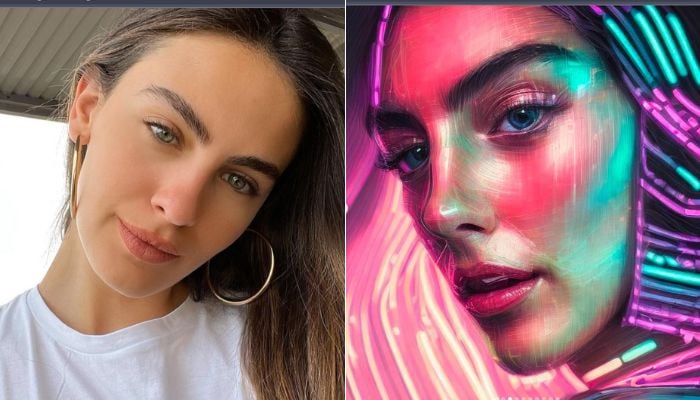Talk of the town: How to take AI selfies for your Instagram feed
Users have flocked to Lensa AI because it blends artificial intelligence and selfies to produce images in a range of styles
December 08, 2022

Have you noticed that a lot of your friends have suddenly transformed into princesses or astronauts? Are Renaissance-style paintings of people who were clearly born in the 1990s taking over your social media feed?
Users have flocked to Lensa AI in the last week because it blends artificial intelligence and selfies to produce images in a range of styles. The software, developed by the business Prisma Labs, is producing images—and controversy.
What is Lensa AI?
You may have noticed Lensa AI's work this week even if you haven't heard of it.
It was the most downloaded iPhone app in the US as of Wednesday, according to Apple's app store.
You may feed Lensa images of yourself or other people, and it will create original, computer-generated portraits of them based on your selfies.
Is it free?
For now, no.
For $3.99 for a week, users may currently acquire 50 avatars, which are composed of 10 photos in five different styles. The checkout page for Lensa states that "Magic Avatars consume tremendous computation power to create amazing avatars for you. It’s expensive, but we made it as affordable as possible."
How does it work?
You'll upload a lot of selfies after downloading the app. When you choose a gender — male, female, or other — and put your phone aside for about 30 minutes, the result appears.
Depending on the package you choose, your face — or something similar — is stretched and compressed across a collection of 50 to 200 AI-generated photos with themes like "cosmic," "fairy princess," and "anime."
It can be amusing to imagine yourself as a painting, an anime character, or a small woodland elf with two quite different-sized eyes (not every photograph will be flawless).
Are there any privacy concerns?
The Institute for Human-Centered Artificial Intelligence at Stanford University's Jen King is a privacy and data policy fellow who said "I doubt that the entire business model is, 'Give us $10 or $15 and we'll send you back an AI glam photo."
Your images and videos may be used to help Lensa AI's algorithms get better. The privacy policy of Lensa AI states that "facial data" is erased within 24 hours of processing and is not used to identify any specific user.











